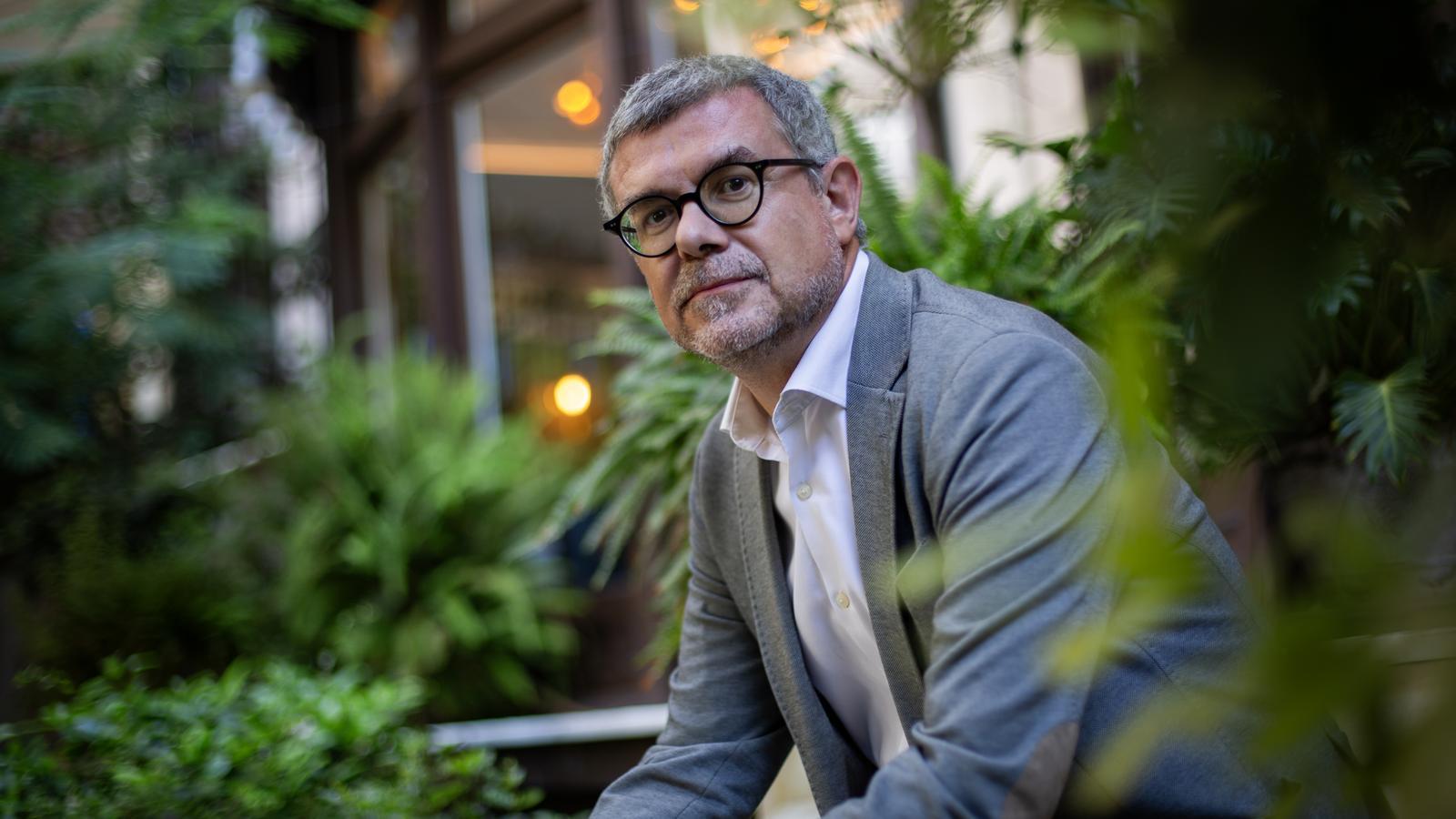Jaume Clotet: "We have a legendary map as rich as any other country in the world."
The writer returns to bookstores with 'The Apostle's Skull,' a historical thriller about a lost Bible.


BarcelonaOf all the things that Jaume Clotet (Barcelona, 1974) has experienced with The Brotherhood of the Fallen Angel (Columna, 2024), the novel's sales and reader success is one of the most unexpected surprises. "We've sold more than 20,000 copies, we've had five editions, and it was among the five most purchased books of last year," notes Columna editor Glòria Gasch. "It was such a success that, at presentations and during the signings for Sant Jordi, people asked me if I would do more," explains Clotet. Given that response, the writer and journalist, former Director General of Communication for the Catalan government, has decided to continue the story of Brother Bernat, a monk of Montserrat, with a second novel, The skull of the apostle (Columna), which hits bookstores this Wednesday with a sales of 10,000 copies in Catalan and 3,000 in Spanish with Destino. And it won't be the last: Clotet is already preparing the third book, which will close the trilogy and which she hopes to publish in 2026.
As with the first novel, there's little that can be said about the story of The skull of the apostle without revealing its mysteries. Clotet cultivates the genre of the "historical thriller rooted in the territory," in the words of his editor, and here the possibility that the devil is captured in Montserrat will once again arise. The protagonists are, once again, the monk Bernat and Berta, a squad girl, who collide with an intrigue surrounding a Bible written in the blood of Christ. "This story has a legendary basis—I didn't invent it—according to which the blood of Christ traveled to Catalonia in the 7th century when Pope Boniface IV decided to remove the relics from Rome to prevent their destruction if the Persian Empire attacked them," Clotet points out.
A Bible stolen by the French
From there, the author also brings into the story one of the three Bibles that Abbot Oliba commissioned to be copied in the 11th century and that were kept at the monastery of Sant Pere de Rodes. "Of these Bibles, one was stolen by the French during the Napoleonic Wars and is in Paris, the other is in Rome, and the third was lost in a fire," explains Clotet. The novel, in fact, takes place in cities such as Jerusalem, Paris, and Rome, but many of its settings are Catalan: San Martín del Canigó, San Pedro del Averno, Ripoll, the sanctuary of the Miracle, and, of course, Montserrat and San Pedro de Rodas.
"We are very used to reading novels with similar themes that take place outside of Catalonia. Part of the success of the first book is explained by the fact that it takes place in our country, in places we can visit on the weekend," says Clotet. In his search for information, the writer came across the legend that says the distance between Catalonia and hell is 30 gates, and the first is located in Sant Pere de Lavern (Alt Penedès). "That's where the saying comes from that Sant Pere de Lavern is the first step toward hell. And also the fact that its bell towers have an angel pointing the way to the gate," says the author, who champions Catalan legends. "We have a legendary map as rich as that of any other country in the world, but we've neglected and infantilized it too much. Some stories are terrifying," he emphasizes.
The skull of the apostle It can be read without knowing the story of the preceding novel, but it borrows some elements from that first book and continues to expand the thread. For example, there are some push-and-pulls in the relationship between Bernat and Berta, which Clotet assures he continues to develop, although he is cautious: "They're a monk from Montserrat and a girl from the squad; I don't want to antagonize either of the two groups."
